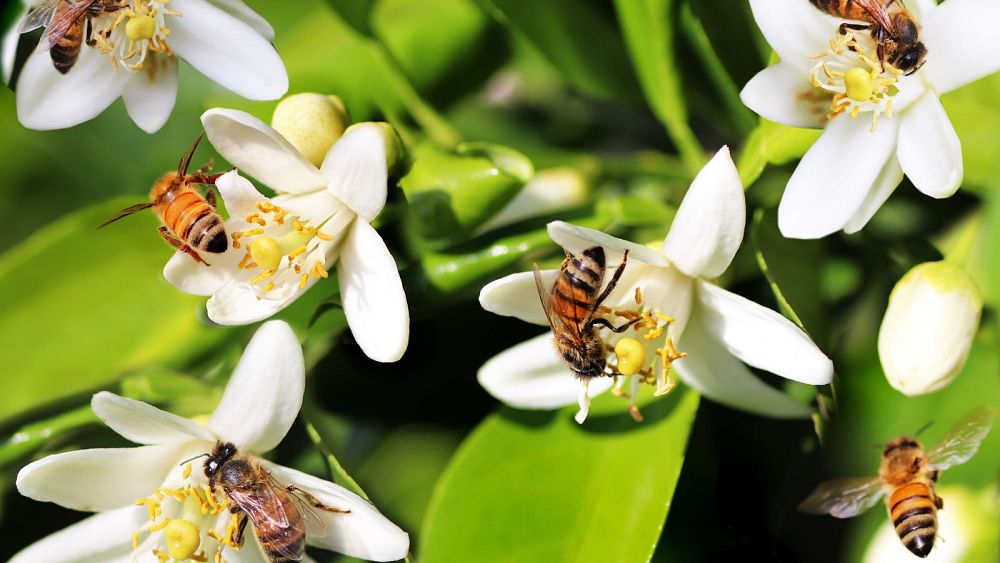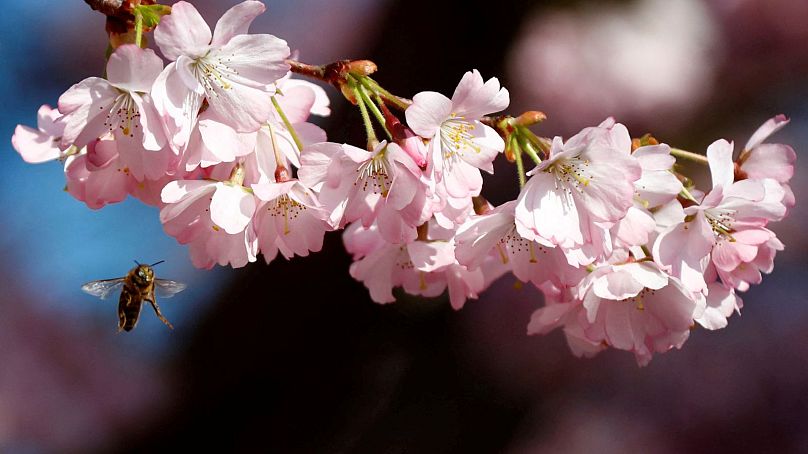
Bees could be ensured safe flight around Europe via ‘buzz lines’ under a new deal unveiled yesterday.
Creating a network of ecological corridors is one of a number of measures in the European Commission’s ‘New Deal for Pollinators’.
One in three bee, butterfly and hoverfly species are currently disappearing in the EU, so we urgently need to reverse their decline by 2030.
The deal aims to do that by targeting their key adversaries: pesticides, pollution, invasive alien species, changing land use and climate change.
“Small things can drive big changes in our world. In the case of pollinators, these small insects will define the future of nature and long-term food security,” says Virginijus Sinkevičius, EU Commissioner for Environment, Oceans and Fisheries.
“We need immediate, targeted actions to save pollinators because they are invaluable for our ecosystems, societies, and economies.”
Why are bees and other pollinators so important?
We all know that bees are the backbone of thriving ecosystems — but a quick reminder of why.
Without their drive to fertilise flowers, many plant species would dwindle and eventually disappear. It’s not just beloved honeybees and butterflies; wasps, beetles, flies and ants are also key to this vital process.
With around 80 per cent of crop and wild-flowering plants depending on animal pollination, the Commission describes pollinator loss as one of the biggest threats to EU nature, human wellbeing and food security, as it compromises long-term agricultural production.
“Already, half of crops in the EU that depend on pollination face a deficit,” comments Frans Timmermans, Executive Vice-President for the European Green Deal.
Today’s geopolitical context makes this even more pressing, given the greater need to make our food system more resilient.
What is the EU doing about pollinator loss?

Announced on Tuesday, the Commission’s new deal builds on a 2018 initiative and sets out a seven-year plan to get imperilled insects back on track by 2030.
This starts with increased monitoring of pollinators across the 27 member states, and better conservation practices. The Commission says it will work with countries to prepare a blueprint for a network of ecological corridors, so-called ‘buzz lines’.
Restoring habitats in agricultural landscapes — with more support for ‘pollinator-friendly’ farming — and enhancing green spaces in cities are two planks of this plan.
What about pesticides?
Pesticides are a major threat to pollinating species. The deal recommends tightening up the laws on ‘integrated pest management’, adding tests to determine the toxicity of the chemicals, and reducing their use.
The bloc is already clamping down on the over-use of pesticides and ‘emergency authorisations’. France, for example, has dropped plans to allow sugar beet growers to deploy a pesticide banned over risks to bees after a European Union court rejected such an exemption.
And the EU has restricted the use of three neonicotinoid pesticides that pose a high risk to bees.
This new deal is in line with the Kunming-Montréal Global Biodiversity Framework adopted at COP15 in December, which includes a global target to reduce the risk from pesticides by at least 50 per cent by 2030.
But environmentalists say the current EU rules don’t go far enough. A million signatory-strong petition delivered to the European Parliament yesterday calls for legal acts to phase out synthetic pesticides by 2035.
What next for the New Deal for Pollinators?
The European Parliament and the Council, representing EU governments, now need to endorse the plan.
EU members will then have to identify measures to reverse the decline of pollinators by 2030, which will be a legal requirement under the EU’s Nature Restoration Law.
“This New Deal for EU Pollinators is a decisive step forward not only for the EU, and can inspire similar action in the entire world. Let’s make it happen before it’s too late,” says Sinkevičius.

